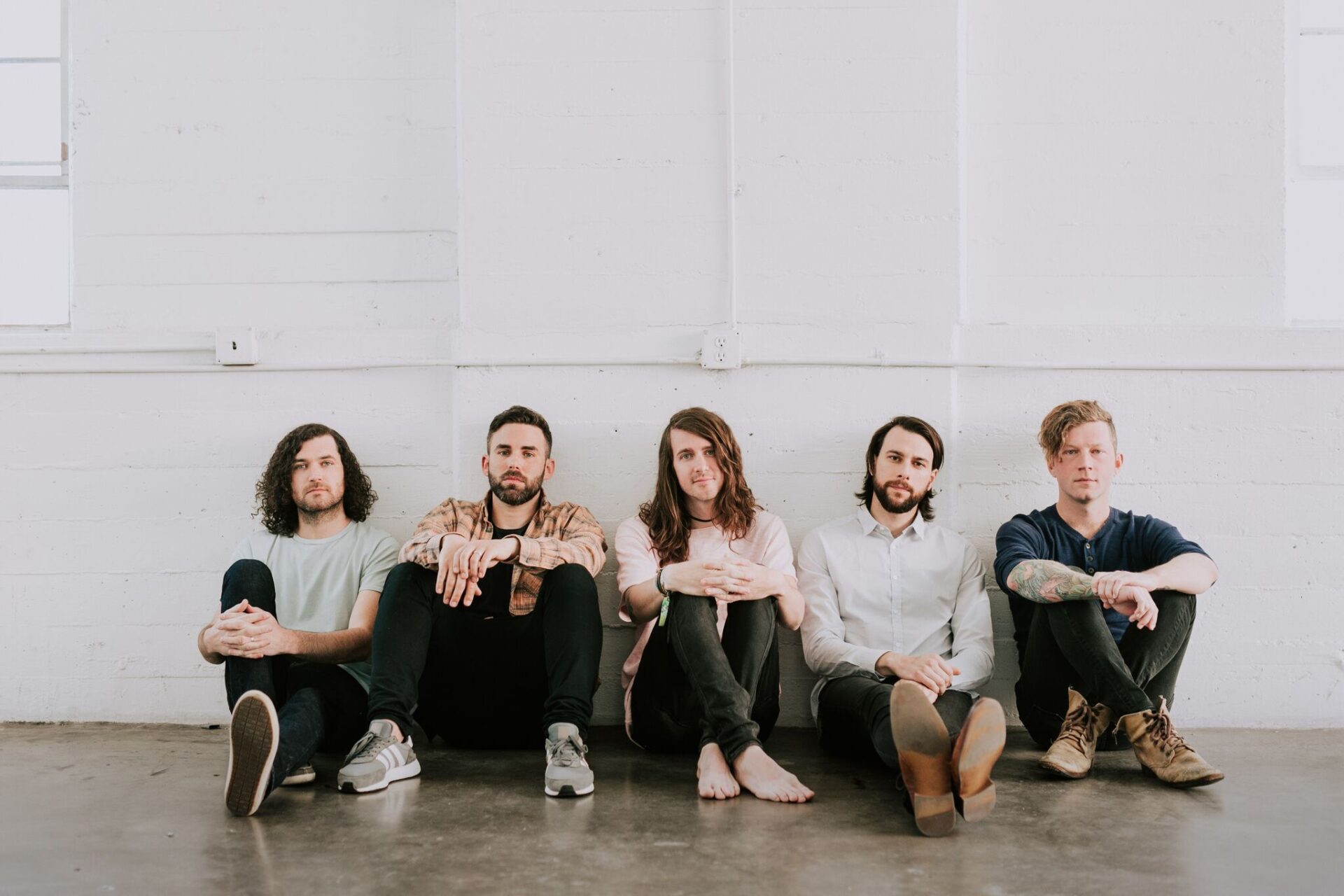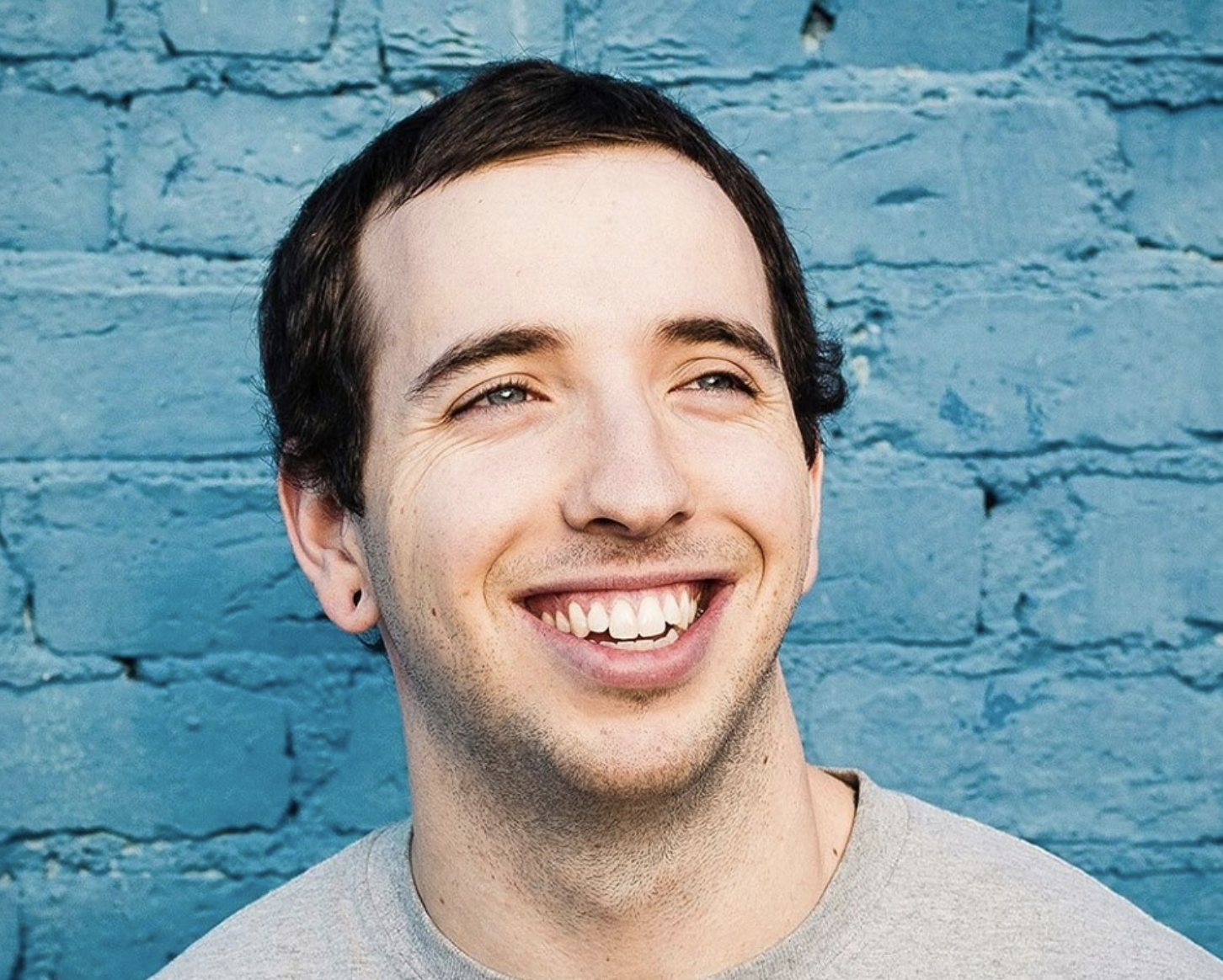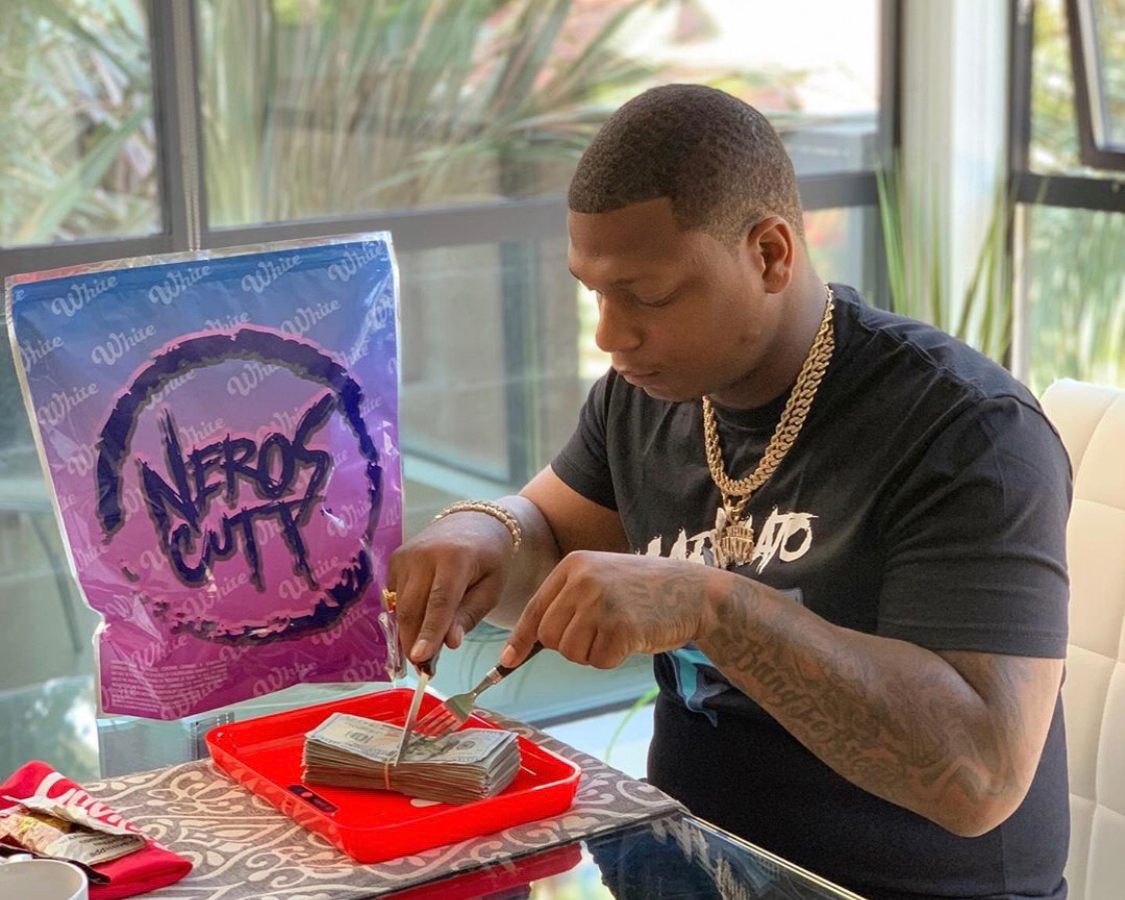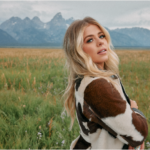It might be hard to believe, but Mayday Parade have been a band for 13 years now. If you’re someone that was in middle/high school when they were first coming onto the music scene, then you might be feeling old right about now. Throughout the 13 years, the band has never once slowed down, and aside from one member change, have been nearly as consistent as you can get. From 2007-2015, the band released an album every two years (Starting in July 2007 with A Lesson In Romantics, then every other October after that), all to positive commercial and critical success. They broke that consistent cycle, only recently announcing that their newest album, Sunnyland, will be released on June 15th. To really dive into Sunnyland and how Mayday Parade got to this point, it’s worth briefly looking back on the first thirteen years of their career.
Last year, Mayday Parade celebrated the ten year anniversary of A Lesson in Romantics before working on their new album, which would turn out to be Sunnyland. A lot of the songs off of Lesson had been played over their career, but Mayday Parade’s lead guitarist Alex Garcia still lamented that playing the album in its entirety was a great experience. “There wasn’t any dispute about what the set was gonna be, it was very straightforward and everyone knew what was happening. Anybody at the show knew what they were gonna get. There was that structure to it, which was nice,” he mentions before comparing the vibe to the more intimate and brief ten year anniversary of their 2006 EP, Tales Told By Dead Friends. “It was something different and special, and I think that filtered down to how we felt about it,” he says highlighting the Romantics anniversary tour.
Towards the end of 2017, it was announced that A Lesson In Romantics was certified Gold in the U.S. by the RIAA, as well as “Miserable At Best” off of that album. When speaking with Garcia, he mentions that the band actually received the news a few months earlier, but shortly after were told that neither was certified gold. “When we found out — both the first fake time and the second, real time — we were at the studio both times,” he begins, “We were working on [Sunnyland] then and my mentality was ‘wow, that was really, really cool and I’m very, very happy about that, but you know, we have stuff that we gotta focus on now, new stuff that we are trying to work on right now, so we can’t live too much in the past and rest on our laurel’s, so to speak.'”
Out of sheer curiosity, I posed the question on whether the Gold certification and anniversary tour for Lesson had any sort of effect on the new album. “Maybe a little bit, but I don’t know,” Garcia states. “We had even met, as a group, once before the Lesson tour. So, we had already maybe like 10 or 12 songs that were in the mix for [Sunnyland] that we had worked on collectively as a band in maybe January or February of last year. Keep in mind, a lot of those songs were even written a year, two years before that point,” he highlights. It’s important to note here how long it can take for a song to be finalized and put onto an album, but of course all along the way it can face many different variations and changes. Garcia wraps up his thoughts on the Lesson anniversary tour affecting Sunnyland by saying “it’s impossible to say that it didn’t, because I think the glaring fact is that [Lesson] was our most successful album, commercially. It was very apparent the whole time, so that had to have weighed on everyone’s mind like ‘well,what are we doing right now?’…there’s always the question, we face it a lot and I can’t think that other band’s don’t face it, ‘how much should we be trying to recapture the sound from our most successful album?’ or ‘how much should we be pushing forward and changing?’ Especially in light of [2015’s] Black Lines, which people considered a departure from that sound. Seeing how that went over, seeing the reaction to that, all of that stuff definitely planned into it. Everyone acknowledges that, and we dwell on that for sure.”
Before Sunnyland was even announced, Mayday Parade announced their signing to Rise Records, leaving their longtime home of Fearless Records. This is a move that Garcia noted as simply wanting a change. “Personally, I think that’s a very good thing to do — especially creatively, because things can get stagnant. Being comfortable is never really good for creating anything, releasing, and trying to keep up with yourself as a band. That being said, Fearless themselves had changed a decent amount since we re-signed with them…we were just looking for something a little different, wanted to try something new,” he touches on before saying that there is no bad blood at all between the band and Fearless Records, highlighting that Fearless founder Bob Becker is family to the band still.
Moving labels isn’t the only way that Mayday Parade wanted to switch things up on Sunnyland. After working with producer Mike Sapone (Taking Back Sunday, Brand New) on 2015’s Black Lines, the band experimented with several different producers this time around. Garcia mentions that they went to John Feldmann (blink-182, 5 Seconds of Summer), Howard Benson (3 Doors Down, My Chemical Romance) while also returning to work with Zack Odom and Kenneth Mount who has worked with the band on previous records. Through all of this, Garcia states that the band — while always willing to listen to input and advice — has worked hard to retain creative control and having “final veto power” in terms of what makes the actual album.
When we moved onto discussing Sunnyland itself, I wanted to know just where this title came from. It turns out, there are a few different reasons as to why they ended up here. Garcia highlights that the album title actually came from the title-track and not the other way around. The song is nostalgic-heavy in lyrical content, as he explains the song deals with “Growing up in Tallahassee and capturing the youth, missing your youth — there’s the nostalgia there.” Before moving forward with talking about the title, he forewarns that he isn’t entirely 100% on the historical accuracy about what he’s about to share, partly because there is a lot of mythology behind it. He describes an abandoned hospital in Tallahassee that was referred to as “Sunnyland,” the typical cliche from horror stories, abandoned rooms, beds, etc., and it is where a lot of their friends would spend time growing up an messing around as teenagers. This place is sort of where the title Sunnyland came from, as Garcia mentions “Everyone liked the way that plays against the idea of Sunnyland, there’s so much weight to that in terms of: is it ironic? The hospital, it certainly is, because its this place that was probably a source of severe, difficult emotional, mental pain for people but it has this benign name.”
When Garcia and I had talked, it had only been one day since the album announcement and release of the first single, “Piece of Your Heart.” The single is a mid-tempo track that really gives off your classic Mayday Parade vibes. It’s driven by vocalist Derek Sanders and an acoustic guitar, reminiscing on spending your life with who the person you love most and having no regrets about how it all played out.
When talking specifically about “Piece of Your Heart,” Garcia mentions that it was a late addition to Sunnyland that almost didn’t make the cut. “Derek had brought that song to the table very late in the game. I think he maybe brought that while we were at the studio, so it was super late in the game and kind of last minute. I think once we really started to get into it, once we started to do pre-pro, that’s when I was sold on it. Initially, I wasn’t; I liked the song from Derek’s demo — I certainly did — but I wasn’t totally on board with it over some of the other songs.” He mentions going through pre-production of the song, really enjoying it, and then showing it to Rise Records and everyone sort of coming to a consensus on it. Garcia then moves to explain that Mayday Parade “Have a tendency to try and be cautious with how you do it, where you kinda want to maybe release a song that eases people into the new material, and then you release what you feel the strongest song is. This time around, we were like ‘no, we want to release what we feel is the strongest’ even though it’s kind of more of a slow, chill song. We just want to release it first so that people get what we feel is the strongest impression of the new stuff is.”
This mentality of simply wanting to put out what the band feels is their strongest material bleeds more into Sunnyland than just the singles they choose to release. Without giving too much of the album away, there are a few more slower songs than I was initially expecting — even from Mayday Parade. This isn’t a bad thing, and in fact, I would say it’s quite the opposite. When asked about the inclusion of slower songs on Sunnyland, Garcia explains that this is something that, as a collective unit, the band picks their top songs — whether it be fast, slow, etc — and try to come to a consensus on the one’s to pick. The main recurring question that he mentions the band face is: “Should we pick a lesser song, because the idea is that it rounds out the album, or should we be true to ourselves and pick what we all think is the best fit?”
The first part of the process, as Garcia tells it, is separating the songs that everyone really likes from the ones that everyone doesn’t like. Typically there’s a top 4-5 songs that the band can come to a consensus on being the best, then the lower tier that they can all agree on ruling out. After that, however, is when things start to get chaotic. “Everybody has different priorities, some people are like ‘I really want it t be a balanced record’ and some people say ‘I really want it to be a fast record,'” he begins. “For me, I’m not that concerned. I’m usually more on the side of I’d rather have songs that I feel very strong about than trying to force on a song.”
The idea of slower songs being more prominent on a Mayday Parade record is something that Garcia and I both agreed would not shock too many people. After all, this a band that has a piano ballad as their only RIAA certified single — as well as 6 of their top 10 streamed songs on Spotify being slow songs. Needless to say, while the band is able to write great upbeat, fast songs, the fans also really like their slower material. Writing these songs — the slower ones in particular — has stayed possible and consistently been successful among fans due to the band’s ability to work together to create the best songs possible.”Pretty much everybody [in the band] writes; everybody competes with each other. It’s a big thing. I think, for better or worse, the band has gotten more song-writer oriented, where it’s more focused on ‘okay who’s song is this?’ and then let’s try to capture whatever this person got with that song,” Garcia explains. He goes on to explain that while it sort of breeds a culture of everyone fighting to get their songs on the album, it also gets everyone involved to try and push to write the best song that they can.
Continuing to explain their recording process, Garcia touches a little bit on the band’s tendency to almost overthink things. This can especially be true for what may be classified as a “single,” where if you know that a specific song is going to be the single off an album, then the band, producers, and everyone involved starts to really focus in on that specific track and scrutinize it — sometimes too excessively. Garcia recalls a specific night when where long-time producer Kenneth Mount was at a show where the band was at, and they start going back and forth about if the band had known “Miserable at Best” would wind up as their most successful song, they would have over-analyzed and over-produced it so much that it would have probably ruined the song. This relates back to Sunnyland in that “Piece of Your Heart” was a song that almost fell victim to this mindset. “We had a lot of conversations about to work out the whole bridge of the song because it was very congested. People were like, ‘I like it this way’ and other people were like ‘I want it that way’. But, it hit we were kind of able to navigate that pretty well, it didn’t get in the way, or subtract anything from the overall song,” he mentions.
One of the last few things that we talk about before parting ways is Garcia’s personal favorite song, which turns out to be “It’s Hard to Be Religious When Certain People Are Never Incinerated by Bolts of Lightning,” in case you were wondering. Not necessarily because it represents Sunnyland the best, but just something about it sticks out to him. Another thing that dominated the last few moments of our time, was the critical reception to lead single “Piece of Your Heart.” The cliche of splitting your fan base between people that think the sound is too different or similar to previous releases is very much so something the band has seen. Garcia acknowledges that you simply can’t please everyone. It’s worth noting, however, that we both agreed no matter what side of that aforementioned argument you find yourself on, there will be something you find enjoyable on Sunnyland. It’s perhaps the best that Mayday Parade could have come up with to represent all of their previous sounds while still moving forward as a group.
It would be slightly irresponsible to simply say that Sunnyland is simply just a result of Black Lines, because this new album certainly stands on its own as something unique and special. However, Garcia does reiterate something that he mentioned earlier, in that the reception for Black Lines, the 10 year anniversary for A Lesson In Romantics, etc., all were on their minds when putting together Sunnyland. “How do we keep that sound [from Black Lines], go back to the old sound to make sure that base is covered, how do we manage all of that,” he ponders. “I think, at the end of the day, that question answers itself with the kind of songs that everyone writes and the writing styles of everyone,” before explaining the difference between Sanders’ more traditional Mayday Parade writing style (specifically he cited Mayday Parade and Monsters In the Closet), drummer/vocalist Jake Bundrick’s more pop-punk writing style, and guitarist Brooks Betts more experimental writing style.
The album is very much so a blend of everything the band a previously done, while also taking a few steps forward in the process. The song has it’s heavier moments that wouldn’t have sounded out of place on Black Lines (“Is Nowhere” and “How Do You Like Me Now” — no, it’s not a cover), more classic upbeat Mayday Parade songs (“Never Sure” and “If I Were You”), and some surprises along the way. There will be something for you on this record if you have been a fan of Mayday Parade at any point in their career, and the good news is, you have just around a month to hear it all for yourself.
Mayday Parade’s ‘Sunnyland’ will be released on June 15th, and will be their first on Rise Records. You can currently pre-order the album here, and catch them all summer long on the final cross-country run of Warped Tour.













